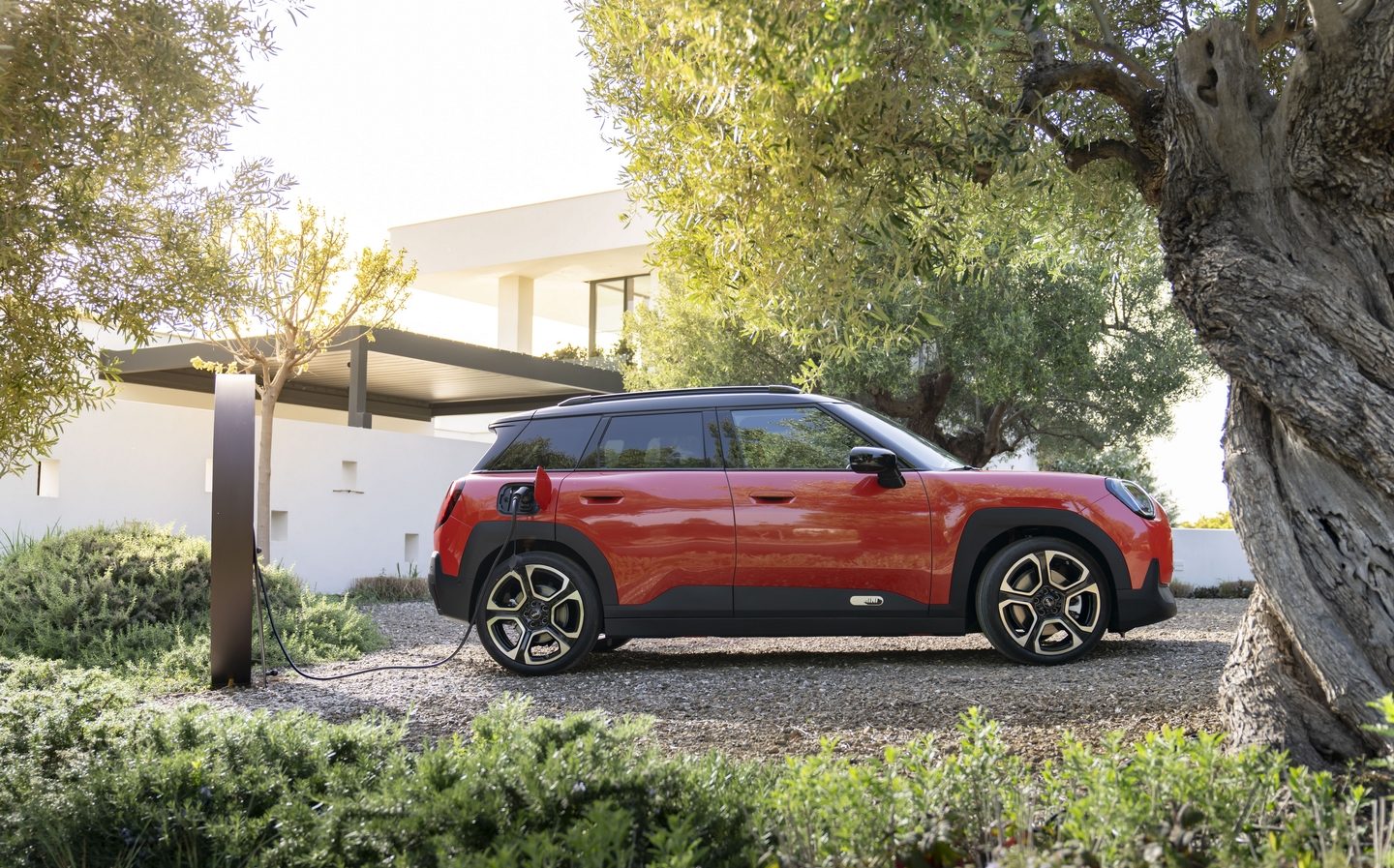New electric-only Mini Aceman fills gap between Mini Cooper hatch and Countryman SUV
Won't cost much more than the hatchback
Mini has finally taken the wraps off its new Aceman compact SUV at this week’s Beijing motor show.
First shown in concept form in the summer of 2022, at just over 4m long the Aceman is designed to fill the gap between the also-new Cooper hatchback (3,858mm) and the Countryman SUV (4,433mm). But whereas the Cooper and Countryman both get the option of petrol and electric powertrains, the Aceman will only be offered to customers as a pure EV.
Reinvention of the original Mini?
According to the BMW-owned brand, the new Aceman is intended to offer a contemporary interpretation of Sir Alec Issigonis’ vision for the original Mini; to create a compact car that utilises the space available to maximum effect.
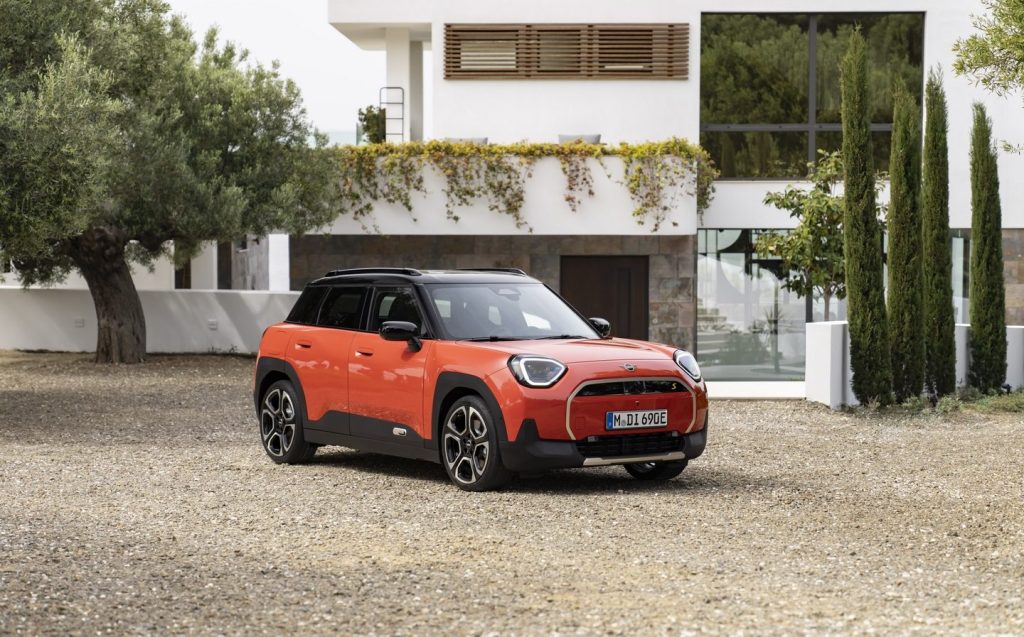
Externally, the car’s design is closely related to that of the other models in the Mini family, with a chunky shape and rugged-looking wheel arches, along with a wide grille-like design on the nose.
Like the new Countryman, the Aceman has angular LED daytime running lights, and those angles are replicated in the arch designs. At the rear, the high bumper melds with the short tailgate, while the rear lights feature a new take on the hallmark Union Flag LED signature.
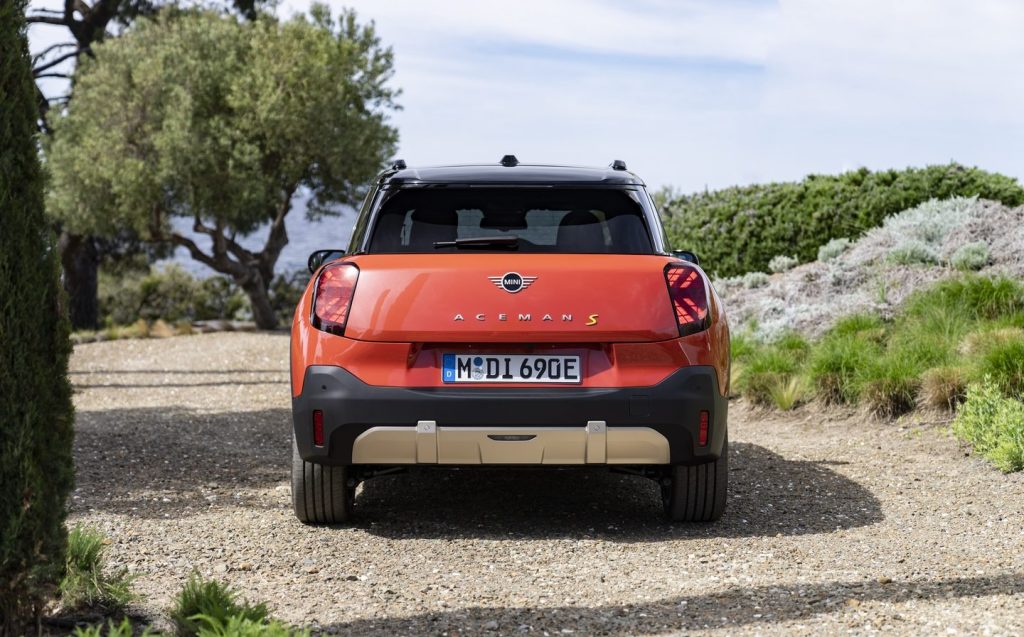
To a degree, though, the car’s appearance will alter depending on the version specified by the customer. The Aceman Classic is the entry-level option in the UK, with Exclusive and Sport versions completing the launch range, the latter featuring JCW (John Cooper Works) aesthetic tweaks.
Circular touchscreen dominates cabin
Inside, the car gets the same clean design as the Countryman and Cooper, with a minimalist dashboard and circular touchscreen infotainment system.
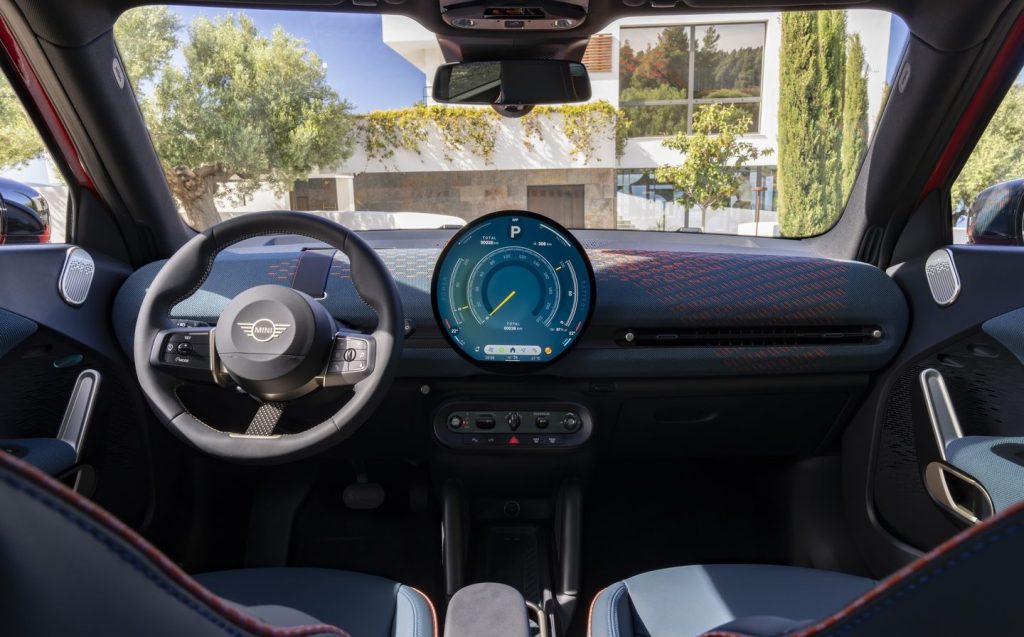
As with the other models, the dashboard is trimmed with knitted fabric, while neat controls for gear selection and starting the car are found lower down. The central display houses everything from media and climate controls to navigation and media systems, as well as information such as speed and trip computer displays.
Using Mini’s latest technology, the 240mm screen comes with a selection of widgets to access various features, and customisable displays. This includes a personal setting that allows owners to upload an image that can be used as “wallpaper”, similar to that of a smartphone, as well as a choice of ambient lighting colours.
As with the exterior design, the Aceman’s cabin design depends somewhat on which version you choose, and a “Vescin” vegan upholstery is one option instead of leather or cloth.
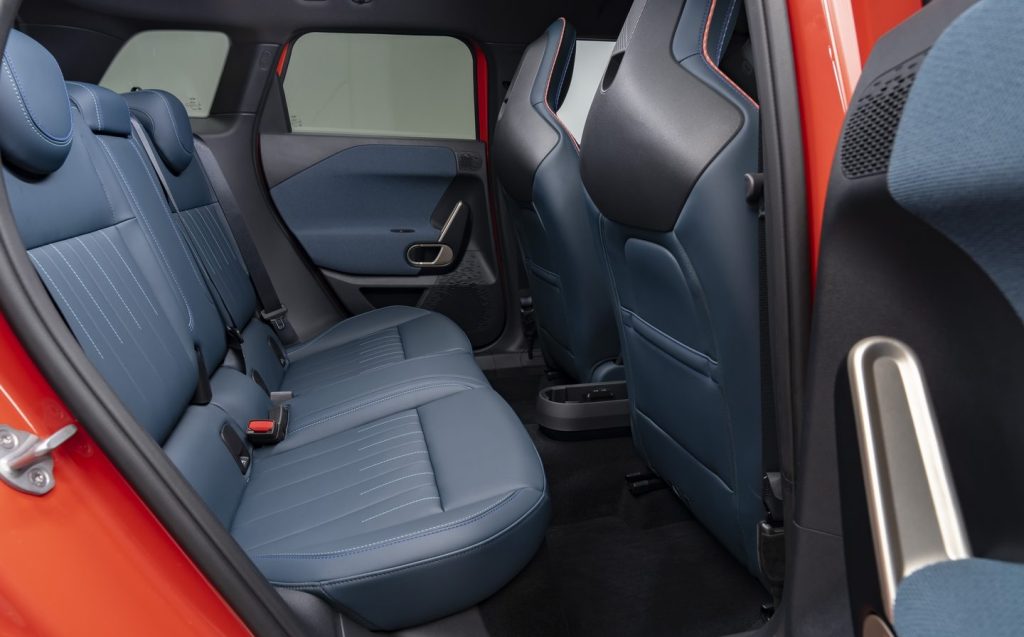
Being larger than the Mini Cooper hatchback, the Aceman’s cabin offers greater interior space, with a 300-litre boot when all five seats are in place, and 1,005 litres with the 60:40 split rear seatbacks folded flat.
Electric power
While the Aceman comes without petrol, diesel or hybrid powertrain options, buyers will still get a bit of choice when it comes to pure-electric performance. The basic Mini Aceman E comes with a 181bhp motor driving the front wheels, while the Aceman SE’s motor produces up to 215bhp.
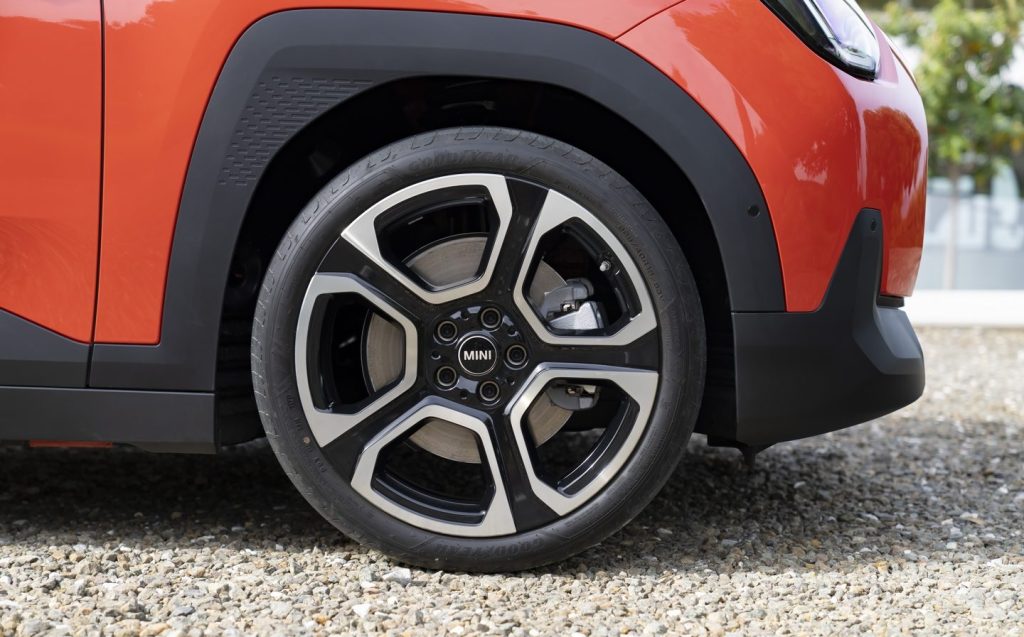
Both will provide adequate performance, with the Aceman E accelerating from 0-62mph in 7.9 seconds and the SE cutting that time to 7.1 seconds. And while the former tops out at 99mph, the SE manages 106mph.
Anyone opting for the Aceman in Sport trim won’t get any extra performance — those upgrades are to the styling only. When Driving.co.uk asked Mini if a full-blown JCW model was in the pipeline, a spokesman said: “We have no information on that… but watch this space.”
What we know for sure right now is that the Aceman E comes with a 42.5kWh-capacity battery pack, permitting a range of 192 miles on a single charge, according to the WLTP test, while the Aceman SE’s larger 54.2kWh battery can in theory cover 252 miles between trips to the plug. However, expect less range in the real world, especially when ambient temperatures dip well below the constant 23C conditions of the WLTP.
Charging speeds won’t set any records but should be adequate for long runs. The Aceman E can be topped up at 75kW from a rapid DC charging station, while the SE can be charged at 95kW. That allows both batteries to be topped up from 10 to 80 per cent in a little under 30 minutes, under ideal conditions.
An electric go-kart?
In terms of handling, we’ll know for sure after the first media drives but Mini is promising the Aceman comes with the sporty character that has become associated with its brand. That’s partly down to the suspension, with a new damping system and pressurised stabilisers designed to improve steering precision, as well as reducing body roll.
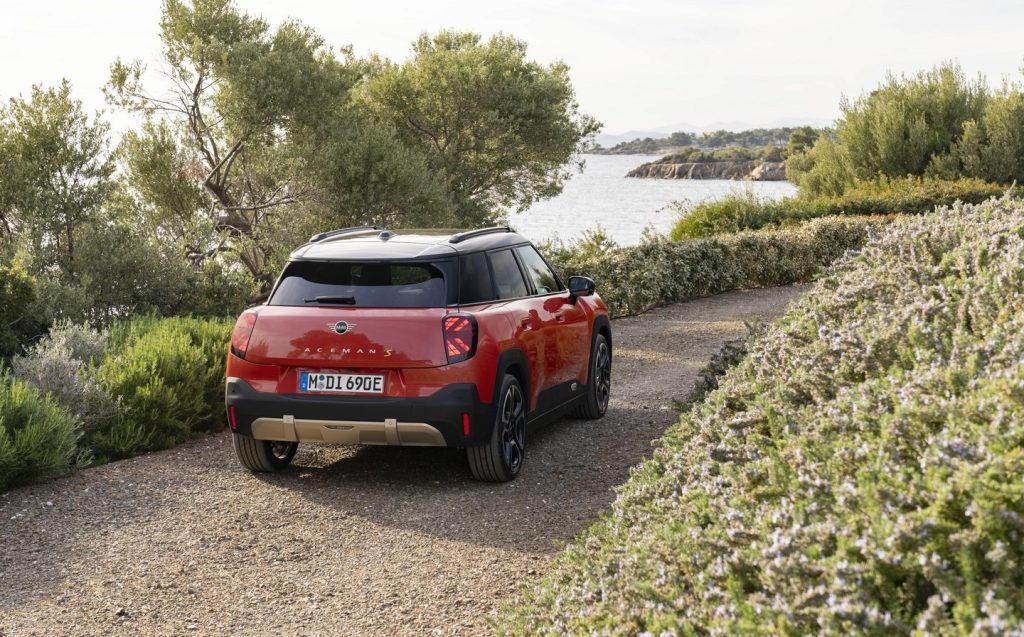
Mini claims to have tuned the accelerator response for sporty driving, while the braking system is also designed to offer a firm and responsive feel. The steering, too, is claimed to feel sharp, while different modes are available with which to customise the driving experience, including the steering response and the points at which the traction control intervenes.
The new Mini Aceman E will be priced from £31,800 — just a shade more than the starting price for the Mini Cooper hatchback (£30,000) — when it goes on sale this summer, with the Aceman SE to cost from £36,300. Expect the first customer deliveries from November 2024.
Related articles
- If you liked reading about the new Mini Aceman SUV, you may like to check out the new Mini Countryman JCW
- Read more about Mini’s built-in video gaming system
- Will electric car prices go down in 2024?
Latest articles
- Five best electric cars to buy in 2025
- Should I buy a diesel car in 2025?
- F1 2025 calendar and race reports: The new Formula One season as it happens
- Zeekr 7X AWD 2025 review: A fast, spacious and high tech premium SUV — but someone call the chassis chief
- Denza Z9GT 2025 review: Flawed but sleek 1,062bhp shooting brake from BYD’s luxury arm
- Extended test: 2024 Renault Scenic E-Tech review
- Best-selling cars 2025: The UK’s ten most popular models of the year so far
- Audi A6 Avant 2025 review: Trusty executive estate ticks expected boxes, and there’s still a diesel option
- Keir Starmer eases pressure on carmakers to sell EVs in response to ‘global economic headwinds’


